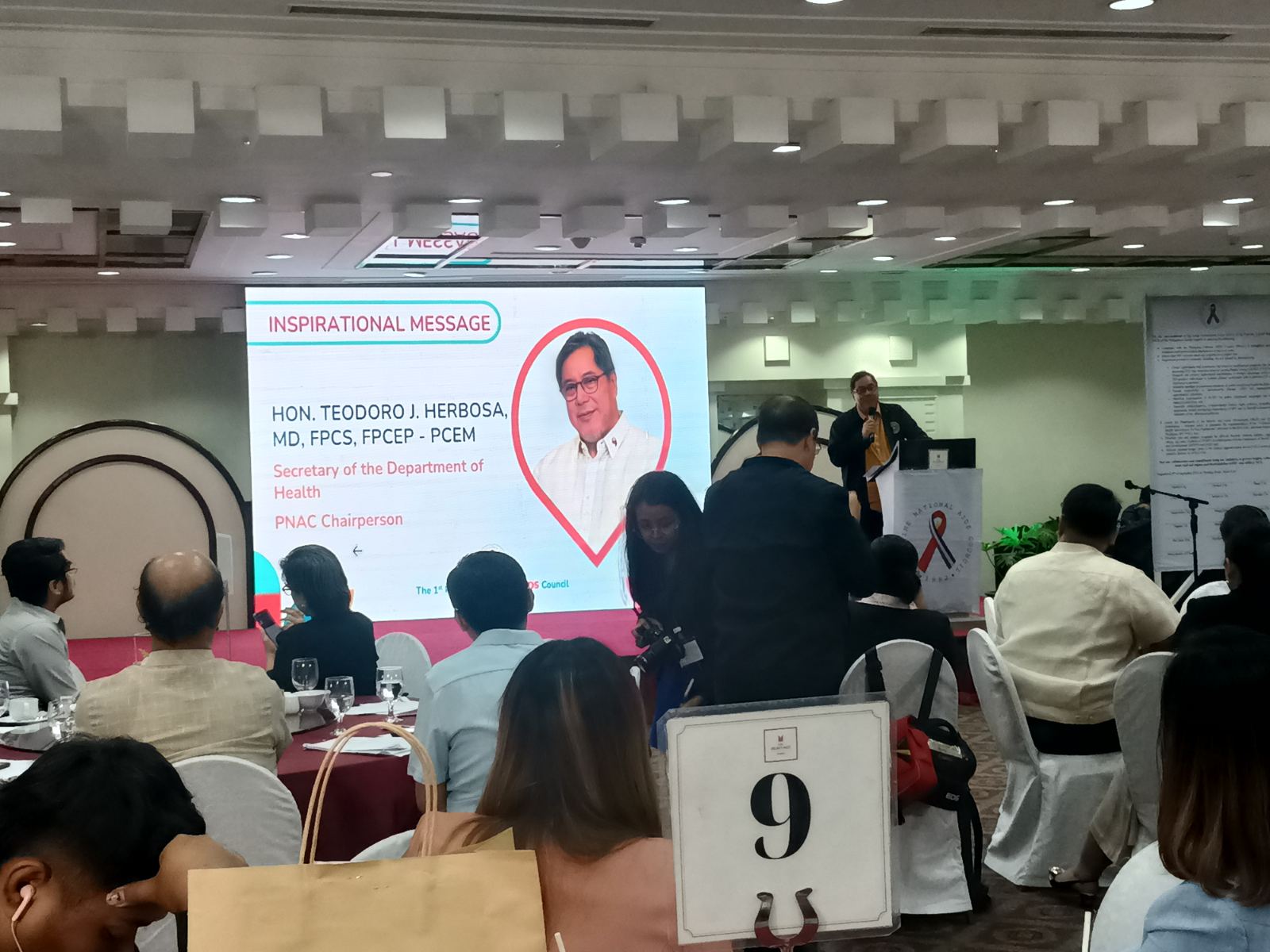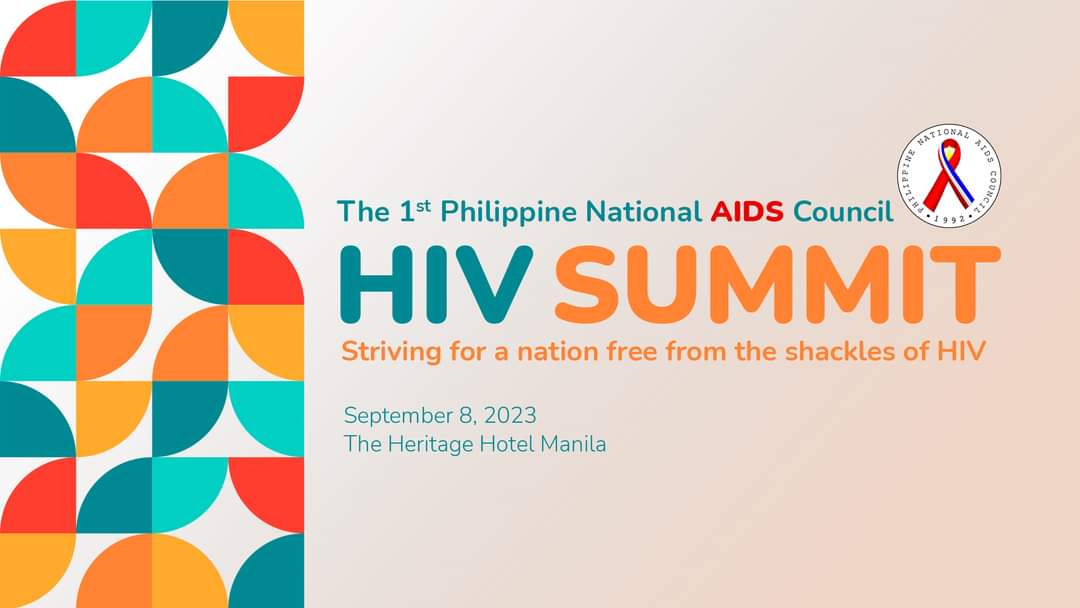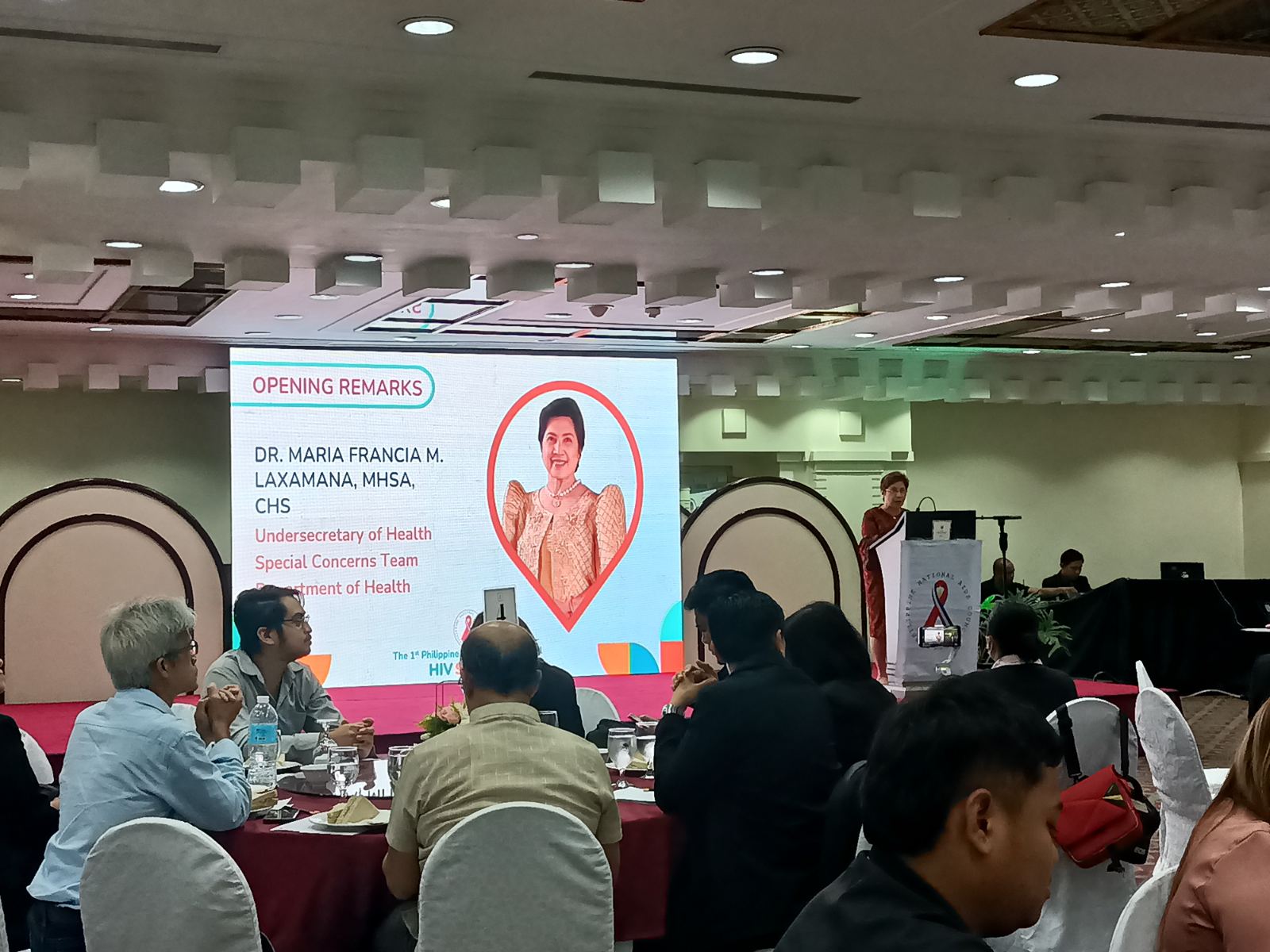To highlight the government's commitment to address the pressing challenges posed by the human immunodeficiency virus (HIV) and acquired immunodeficiency syndrome (AIDS), the Philippine National AIDS Council (PNAC), an agency attached to the Department of Health (DOH), convened its inaugural HIV Summit on Friday, Sept. 8.

The conduct of the summit was aligned with Republic Act (RA) 11166 or the Philippine HIV and AIDS Policy Act. It also underscored the nation's unwavering commitment to a comprehensive and multi-sectoral response to HIV and AIDS.
"It’s very interesting that over the decades, it continues to be our problem, and I was surprised when the president actually called me to his office in Malacañang and he told me to address HIV,” said Department of Health Secretary (DOH) Teodoro Herbosa during the 1st PNAC HIV Summit held in Pasay City.
He also emphasized the importance of addressing the issue, particularly among young individuals. “Now, I think this is an important task for me, and the new problem is that… it's not the adolescent problem now. It's now a problem for our young kids, and that makes me even sadder,” Herbosa said, highlighting the pressing need for collective action.
As the DOH Secretary and the PNAC Chairperson, Herbosa expressed full support for the effort to eliminate discrimination and uphold the rights and dignity of people living with HIV.
A compassionate stigma-free society, he said, is critical for an effective response.
“Let’s integrate the 8-point action agenda of ‘Healthy Pilipinas, Bawat Buhay ay Mahalaga (Healthy Philippines, Every Life is Important),’ into our strategies embodying the values and principles that guide our nations,” he added.
1st Summit
With the theme, “Striving for a Nation Free from the Shackles of HIV,” the event served as a vital platform for stakeholders to unite in addressing the multifaceted issues related to HIV and AIDS.

One of the primary objectives of the summit was to “increase awareness” of the PNAC's mission, foster collaboration among stakeholders, and promote social justice through the PNAC human rights roadmap.
DOH Health Special Concerns Team Undersecretary Dr. Maria Francia Laxamana explained the significance of the summit amid the challenges faced by the PNAC, particularly about funding.
"But if we will observe in the past years, even in terms of funding, wala po tayong nakukuhang (there are no more) funds from the national government for the council itself,” Laxamana said.
“In fact, in the previous years we’ve been levying for the continued funds from our GAA [General Appropriations Act ],” she added.
However, Laxamana recognized the collective effort that led to significant progress. “This is the 1st time in 2023 that the Senate has given us a budget for the council,” Laxamana said as she emphasized the importance of a unified voice advocating for resources to combat HIV and AIDS.
“The council sometimes carried negative connotations, but in our case, it signifies an opportunity to rebuild a path toward new success,” Laxamana said.

Human Rights Roadmap
Central to the discussions was the nation's 7th AIDS Medium Term Plan (AMTP), a blueprint for coordinated efforts to address the HIV crisis and its contributing factors, including social and gender equality, stigma and discrimination, and structural barriers that hinder access to prevention, treatment, and care.
The 7th AMTP comprises five pillars, each with specific targets aimed at preventing new infections, treating people living with HIV, protecting their rights, strengthening governance and leadership, and ensuring a fully resourced and crisis-resilient HIV response.
A key aspect of PNAC's commitment to human rights-based approaches to addressing HIV and AIDS is the Human Rights Roadmap.
This strategic plan outlines objectives, significant actions, milestones, and a six-year timeline, facilitating communication of the government's policy direction.
The roadmap, said PNAC, aims to eliminate stigma and discrimination associated with Persons Living with HIV (PLHIV) and key affected populations, creating a supportive environment for HIV testing and early treatment.
The Philippine government has also introduced the National Advocacy Plan (NAP) 2022–2028 to address concerns related to HIV and AIDS.
This comprehensive plan aligns with the Human Rights-Based Approach (HRBA) and empowers rights-holders while enhancing the responsibility of duty-bearers to uphold and respect human rights. (Zekinah Elize Espina)